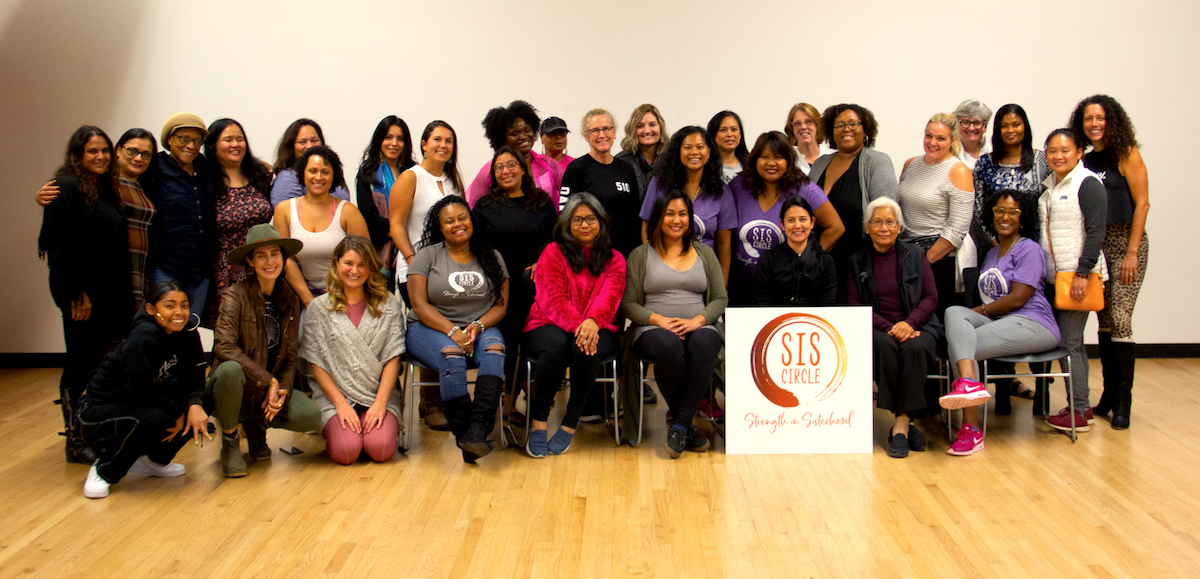Tina J. Ling is a “reacher outer.” That was the reason That’s What She Said (TWSS) organizers thought of Tina for last May’s “Financial Freedom for Womxn” seminar at The Social Study, a women-owned Bay Area bar in San Francisco. A few of us SIS Circle sisters were there to listen and learn from Tina about getting the most out of our finances.
We cannot move forward in finance without community.
The room was filled with womxn from different financial backgrounds to learn about changing their relationship with money so they can be more successful in their financial decision making. Tina challenged our thinking. If we aren’t talking about money and finance, how are we supposed to learn about finance? To drive her point across, Tina said, “In sales, we talk about money all the time. We brag to each other what we make. They talk about it on the golf courses. That is community. We cannot move forward in finance without community.” Gaining and having knowledge in finance is about community.
I am stressed about money often.
Tina asked us to look at what we care about and what we need to take care of in our lives. Deciding what’s important will be the driving force and motivation for our decisions. She instructed us to take a self-assessment where we were presented with statements to rate from 1 (low) to 5 (high). One statement that struck a chord with many of us was “I am stressed about money often.” With trepidation, some of the womxn in the room admitted that they were stressed often about money. The sharing confirmed that we are not alone in the journey. It was reassuring. Saying out loud our own worries and fears is how we begin to motivate ourselves toward making financial plans. Fear was the most common emotion attached to the discussion about finance. In fact, Tina mentioned that she worked with people who are in their 40s and 50s who had never talked about money.
“I don’t talk about how much I make because I feel people I know may be uncomfortable with it.”
– Shumsha Hanif- Cruz, a Founding SIS Circle Sister
In the Forbes article, Why We Should Get Over The Taboo Of Discussing Salary Openly And Honestly, the author Jack Kelly says we would all benefit if we get over the taboo of discussing money. He writes, “It would open the door to more real and honest conversations about saving for the future and having sufficient funds for retirement and other commitments.” Tina reminded us, “At the beginning (of the seminar), I told you how much I made because without it, that’s how they win. In sales, we talk about it to pump each other up and to know what salary value is.” Without the direct and clear discussion, we don’t know where the value lines are drawn.
We learn about money from people who raised us.
We learn about it from the people we spend time with.
From them, we learn how to interact with money.
Our placement at or above the poverty line shapes our interactions with money.
In a group discussion, one attendee stated “For each of us, enough is different. For some of us enough is having enough to keep the lights on. For others, enough is having enough for a vacation.” Tina replied, “We let the external world tell us too often what is enough for us. When we ask for something and receive less than what we know we deserve, that is letting the external world tell us what is enough for us.” In order to be in control, we need to be clear, concise and intentional about what we say when we need “just enough.”
Changing how we see finance will help to change our financial decisions. Throughout our lives, we have been conditioned to believe that with more money comes more problems. Life and life’s problems will continue to happen whether we are wealthy or not. When our basic needs are threatened we respond differently. It was important to remember that money doesn’t make life’s problems go away however it makes life more comfortable when you have to deal with them.
Get clear on your goals.
Tina told us to get clear on our goals and asking for what we want. Write down a tangible amount and date. This was difficult. What am I aiming for? How much is too much? There was a murmur in the room. “How are you supposed to receive what you want if you aren’t clear about asking for it?” The third, fourth and fifth steps are just as hard as the first.
“You are not your money.” She repeated it. Then she repeated it again. “You are not your money.” This mantra was going to take a hold on us all.
By the end of the seminar, there was a sense of relief and understanding about what kind of work needs to be done to change our relationship with finance. This was an experience I didn’t know I needed. Money doesn’t have to be the root of all evil. Those shaped metal and pieces of green paper we refer to as dollars and cents don’t have the same control over my mental state that they did when I started the evening. This is not to say that money doesn’t have a place and isn’t a valued commodity in the world we live in. Rather, I should value it as a tool and be in community with finances more because I am not my money.
About the author: Brandy Collins is a Bay Area native living in Scorpio magic, observing of the world, and telling stories about people in random places. Follow on twitter @gurl79 or Instagram @story_soul_collecter


